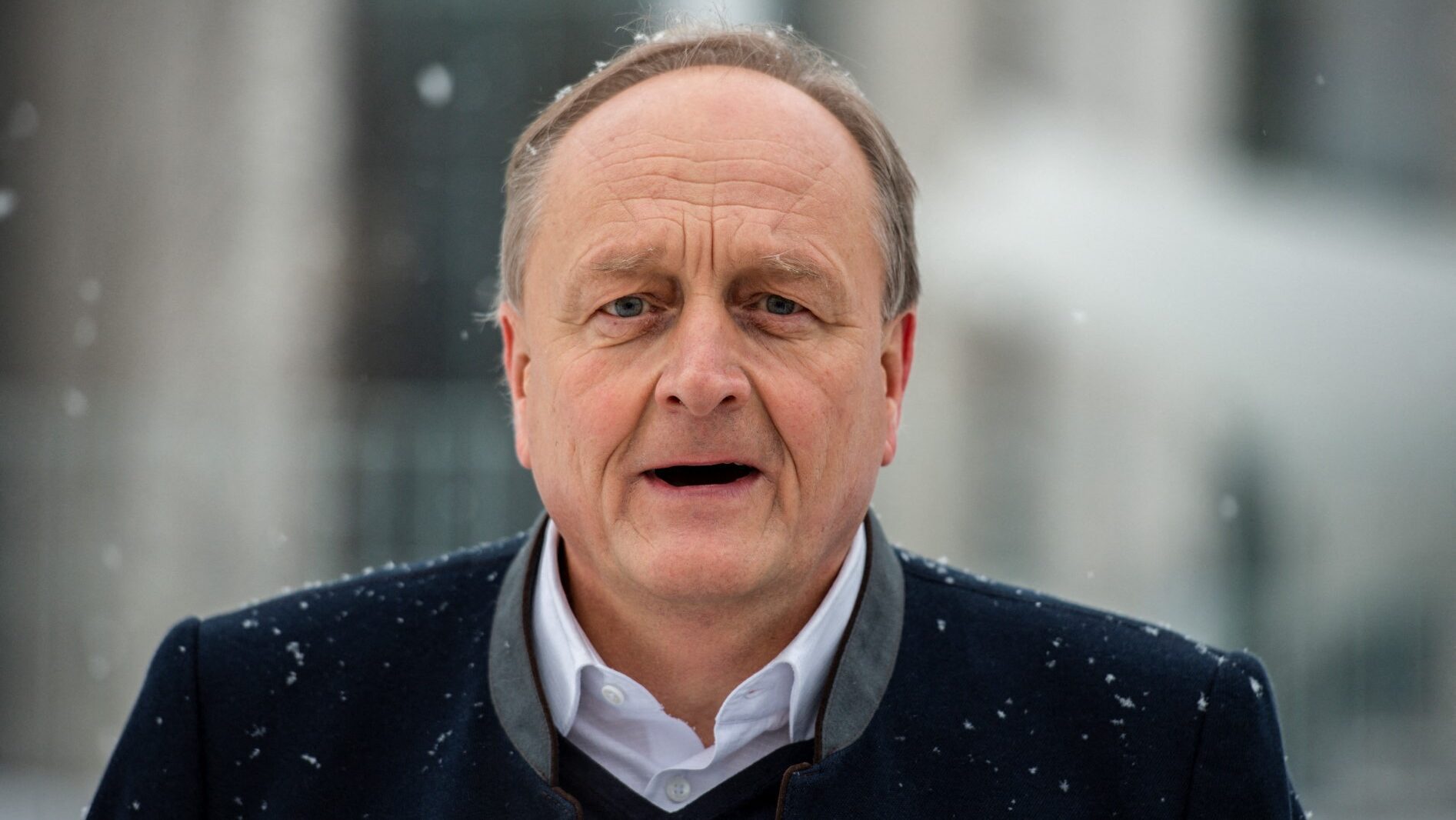
President of the German Farmers’ Association Joachim Rukwied
Photo: AFP / John MACDOUGALL
Protests by German farmers will pause temporarily this week after their primary organisation agreed to talks with the ruling coalition. This follows a successful rally in central Berlin, the culmination of a week of public blockades, demonstrations and even a plan to dump manure outside government buildings in the capital.
Negotiations between the Deutscher Bauernverband (DBV) and the government started on Monday. On Wednesday, DBV President Joachim Rukwied said in an interview: “I rely on the common sense of politics. … The [government’s planned subsidy reduction for agricultural diesel] proposal must be taken off the table.” Otherwise, Rukwied did not rule out further protests and demonstrations.
„Ich setze auf die Vernunft der Politik. […] Der Vorschlag muss vom Tisch“, betont DBV-Präsident @JRukwied im Interview mit @welt mit Blick auf die Diskussion um den #Agrardiesel. Rukwied schloss andernfalls weitere Proteste und Demonstrationen nicht aus. pic.twitter.com/BRT3sFJzln
— Deutscher Bauernverband e.V. (@Bauern_Verband) January 17, 2024
Protesters will be advised to “keep a low profile” while the talks are ongoing, as a provisional sign of good faith towards government negotiators.
Farmers are aggrieved about planned cutbacks to strategically important diesel subsidies at the behest of the ruling green-left government, Their protest movement is fast becoming a flashpoint for the country’s rising wave of populism. The main protest in Berlin enjoyed a strong showing from sympathetic truckers, amid speculation that the protests could spread to other threatened sectors across Germany.
Farmers’ organisations will not accept cuts to diesel subsidies and have, to date, rejected outright government proposals to reduce the tax burden on agricultural vehicles and to extend certain subsidies for three additional years.
Despite broad public support, high-ranking members of Die Linke party have refused to compromise with the DBV. Party leader Janine Wissler called for Minister of Finance Christian Lindner to be sacked for speaking on stage at the Berlin rally.
Europe's farmers in revolt!
— MCC Brussels (@MCC_Brussels) January 15, 2024
We've had an inspiring day in Berlin. Watch this space for lots of interviews and reactions from the day.
Here's a sneak peek! pic.twitter.com/yeumShI6Se
The farmers’ demonstrations have added to a sense of crisis within mainstream German politics, as reflected in recent opinion polls and the growing potential for agrarian unrest to find widespread support.
